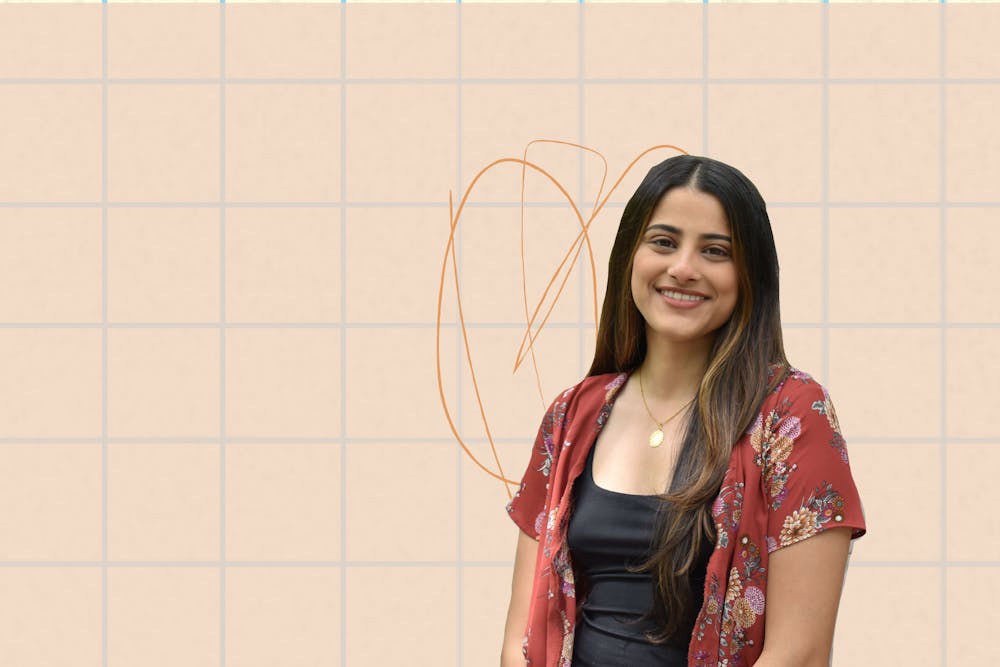
At the heart of Penn’s campus, distanced from the array of academic buildings, sits a statue reading the most valuable lesson Penn can impart on its students: love.
Last year, as I contemplated the meaning of the pandemic at its peak, I picked up “Man’s Search for Meaning,” by Viktor Frankl. In the book, Frankl, a psychiatrist and holocaust survivor, spends a considerable amount of time discussing love and its role in giving life purpose. At the pit of suffering, Frankl realized a core tenet, that “the salvation of man is through love and in love.” He conveys that through love, we forget ourselves, finding meaning through giving ourselves to another cause.
Frankl’s belief about giving love reminds me of my favorite quote by Dr. Cornel West, “justice is what love looks like in public.” To me, both Frankl and West highlight the power of love in community — love that goes beyond us as individuals, and transcends to people we have never known. Over the years, these words have been a guiding light, and a reminder of why I care deeply about justice.
I joined The Daily Pennsylvanian because writing about social issues is my way of loving in public. My years at the DP and Penn coincided with Trump’s presidency, national anti-gun violence protests, social uprisings for racial justice, and a global pandemic. Through these difficult years, it felt as though the never-ending news cycle of injustice and heartache left me more disillusioned than hopeful. Through writing, I rediscovered a sense of purpose beyond this feeling of powerlessness.
When I started as a news reporter my first year, I never expected that learning about journalism and storytelling at the DP would teach me about justice. But at its best, that is exactly what journalism works towards when it amplifies the stories around us. Focusing my columns on issues local to Penn and Philadelphia helped me find a role within this complex community.
Like many students, I was introduced to the astonishing wealth of resources at Penn at the same time I was exposed to the inequity they made apparent. Many of my columns have attempted to communicate this conflict, and the internal dilemma it poses to us as students. Why do Penn students have access to resources that aren’t accessible to the public education system blocks away? Why is our family’s income a greater predictor of our success than our work? If love and community are so central to Penn, so much so the LOVE statue sits at the center of campus, why doesn’t Penn’s love extend beyond its perimeter? The way things are now, is justice even possible?
I don’t have all these answers. But at my core, I believe the answer to justice connects to love, as Dr. Cornel West said. There is a laundry list of arbitrary circumstances that got me to Penn — from big things like the timing of my family’s immigration or the zip code I grew up in, to seemingly small things, like rides home after high school extracurriculars, or older siblings that helped with financial aid forms. These circumstances, and the opportunities they unlocked for me, remind me of the power of love and community — and the resources they provide.
It wasn’t long after I arrived at Penn that I realized I did not deserve to be here, and that no one really did. Like me, we all had a series of fateful circumstances open doors and opportunities for us. Dominoes of small chances, like being born in the right place or receiving mentorship at the right time, fell on top of each other and gave us access to this education. While the arbitrariness of our place here is scary, it’s also hopeful. Knowing that none of us truly deserve to be here, opens us up to believing that everyone, with access to the right resources, would thrive here too.
After we graduate, it’s up to us whether we reproduce a network of elitism and insulate these resources we had access to, or whether we choose to share them. As DP alumnus, William Snow, said best in his own senior column, “Penn seems to take our wealthiest and most privileged and give them the tools to go into the world and create the next generation of wealthiest and most privileged.” With our choices, we have the power to change this cycle.
Graduation speeches are often filled with the flattering but trite remark that we are the “leaders of tomorrow.” If we wish to live up to this standard, we cannot forget to intertwine justice and love in whatever we do. After we graduate, we will make choices that indirectly or directly affect our communities, and determine whether we uplift or undermine the stories around us. These decisions, of where we want to work, who we want to open doors for, and how we give back, have the power to set off dominoes of opportunities for others.
So, the question is, are we brave enough to love in public?
UROOBA ABID is a College senior studying international relations from Long Island, N.Y. She has served as an opinion columnist since 2019 and was previously an admissions and financial aid beat and first-generation, low-income beat reporter in 2018.
The Daily Pennsylvanian is an independent, student-run newspaper. Please consider making a donation to support the coverage that shapes the University. Your generosity ensures a future of strong journalism at Penn.
Donate






